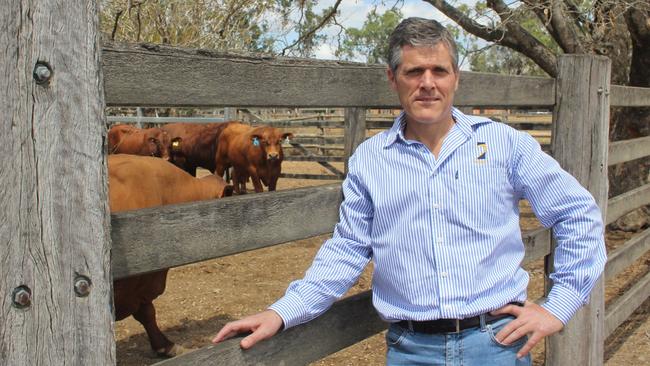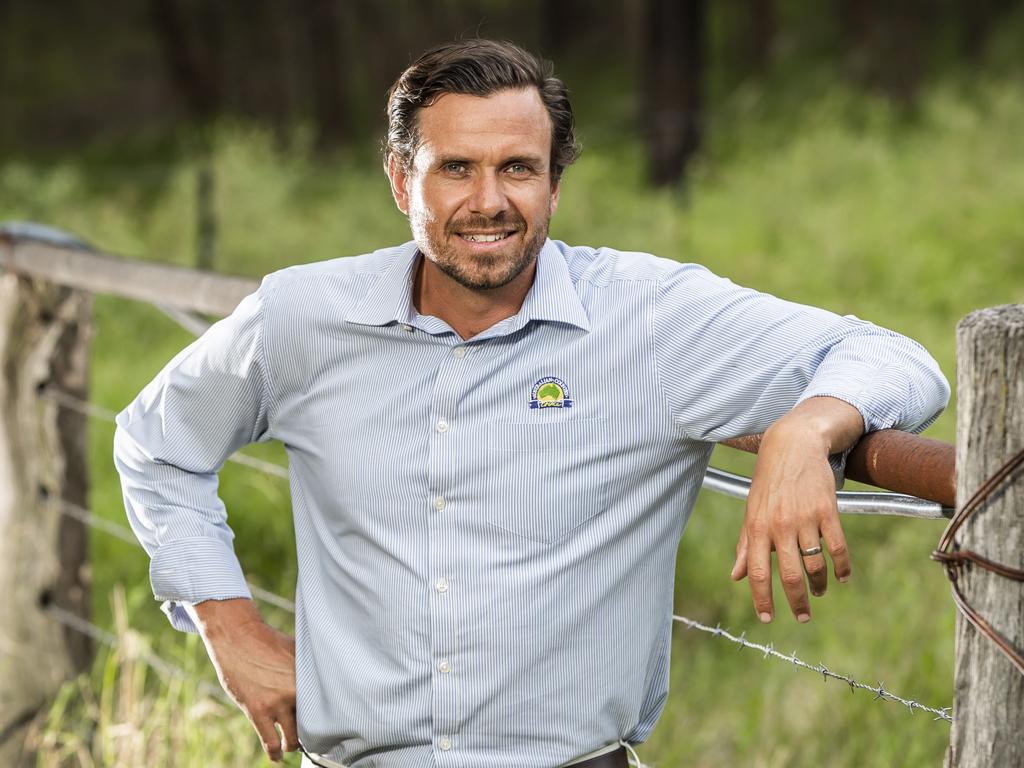Farmer fury over carbon capture prompts court action
It’s Australia’s largest underground water resource and covers 22 per cent of the continent. A mining company wants to store carbon dioxide waste from a coal-fired power station in it.

Farmers are preparing to launch legal action against the federal government in a bid to force Environment Minister Tanya Plibersek to reassess mining giant Glencore’s proposal to dump carbon dioxide waste in the aquifers of the Great Artesian Basin.
Queensland lobby group AgForce has warned the Labor government it is willing to put its “entire balance sheet” on the line to stop the Swiss mining giant amid concerns the project could contaminate the underground water resource relied on by communities, farmers and industry in much of eastern Australia.
Farmers and conservationists were shocked when the carbon capture and storage project, which involves pumping liquefied carbon dioxide by-product from a coal-fired power station into the aquifer, was given swift federal approval in early 2022.
AgForce has underwritten a legal challenge to seek a judicial review of the decision in the Federal Court and hopes other state farming organisations will join the action.
“AgForce, a small advocacy group, has made its whole balance sheet available if in the worst-case scenario we have to take this to court,” chief executive Michael Guerin said. “It is a conversation we cannot afford to lose. This is a line in the sand for industry and community.
“Nothing short of revoking the federal decision ... will suffice.”
AgForce last week warned the Environment Department it intended to file action in the Federal Court if the government did not revoke its decision that the project was not a “controlled action” – requiring thorough departmental scrutiny – under environmental protection legislation.
AgForce would also seek an injunction against the Queensland Environment Department, which is currently assessing the application, from making a decision until the judicial review was finished.
Farmers fear dumping carbon dioxide within the 1.7 million square kilometre basin, which covers 22 per cent of the continent, will cause irreparable harm.
Glencore’s Carbon Transport and Storage Corporation (CTSCo) project on Queensland’s Darling Downs has been opposed by landholders, graziers and cropping farmers, farming groups and Nationals MPs.
Among the concerns are potential acidification of groundwater and the creation of leakage points between layers of the basin. CTSCo’s “test injection demonstration” would store up to 330,000 tonnes of carbon dioxide over three years.
Liquefied gas from the Millmerran power station, 100km west of Toowoomba, would be moved by truck and pipeline, and injected 2.3km below ground into the precipice sandstone aquifer near Moonie.
By sequestering the gas underground, CTSCo would be eligible for carbon credits and the power station, which is fuelled by coal from the nearby Commodore Mine, could be deemed carbon neutral. Opponents fear the project could pave the way for millions of tonnes of carbon dioxide being stored in the basin.
CTSCo says carbon capture and storage is proven technology and that dozens of large-scale facilities around the world are already sequestering more than 40 million tonnes of CO2 a year.
But most of those are within former oil and gas reservoirs.
CTSCo general manager Darren Greer said backed the science behind the proposal and said shallower potable water sources would not be affected and that it would not impact existing or future groundwater users.
“Glencore understands and respects the importance of the Great Artesian Basin to the Australian agricultural community,” Mr Greer said.
“We also understand there can be resistance to new projects or technologies in agricultural areas.
“Just as the agricultural community has embraced technology to increase yields and crop qualities, the world will be reliant on technologies – like CCS – to meet its global climate goals.”
The company has said it has engaged with the community and relevant industries since 2019 to address concerns and that the project would be closely monitored.
AgForce contends that the project constitutes a controlled action under the legislation because it involves matters of national environmental significance.
Precedents exist in the Federal Court in which projects linked to coal mines have been deemed controlled actions.
The court in 2022 found that the former environment minister had made a legal error by not acknowledging Adani’s proposed Suttor River flood harvest, a supplement to the Carmichael coal mine, was not a controlled action.
The “water trigger” case set aside the previous controlled action decision and sent the matter back to the minister.







To join the conversation, please log in. Don't have an account? Register
Join the conversation, you are commenting as Logout